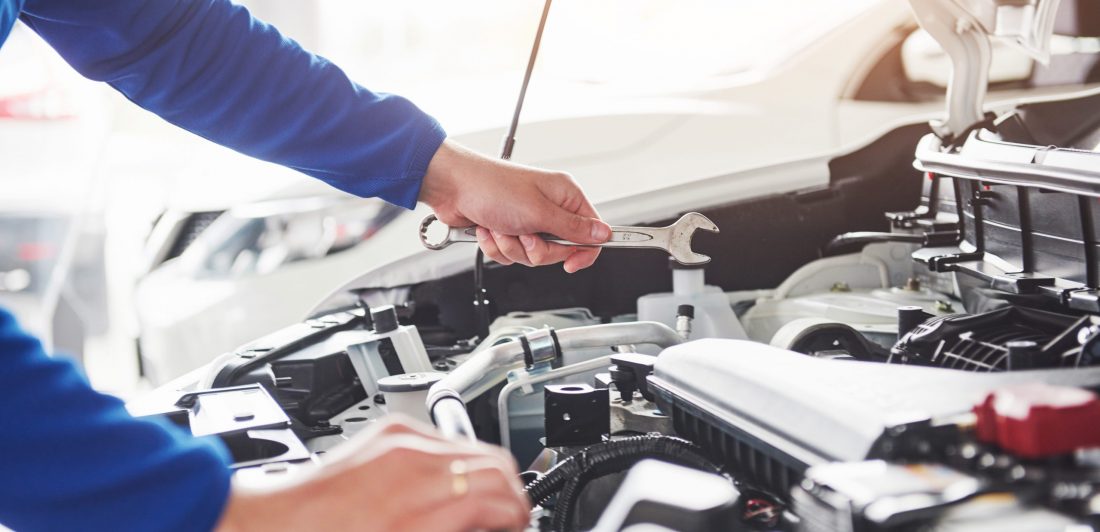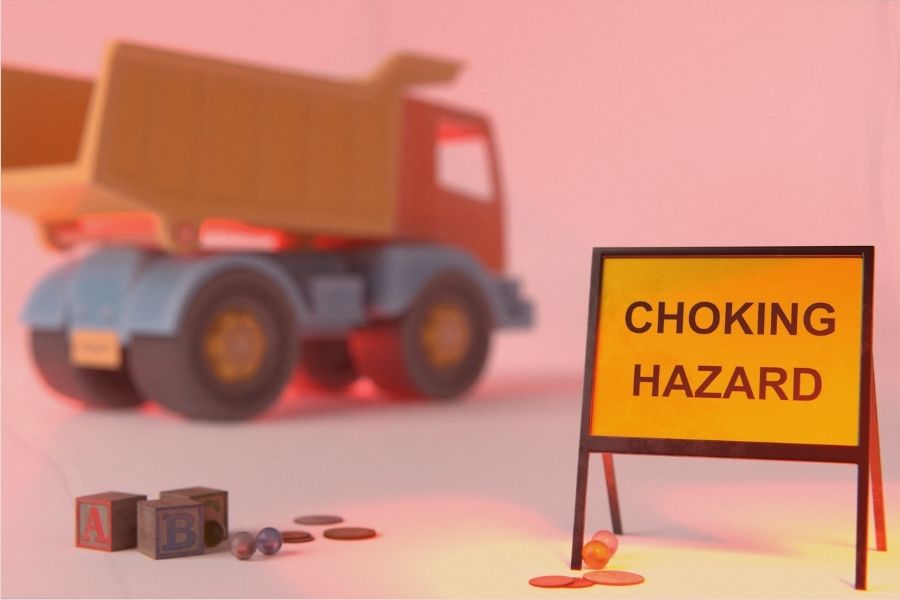A personal vehicle is an essential form of transportation to get to and from everyday activities. Car owners expect their vehicles to be safe enough to take them from point A to point B without experiencing any unsafe vehicle defects. However, with all of a car's moving parts, issues may arise and something can fail when you least expect it. It is important to remain knowledgeable about what can go wrong in your vehicle that you may not be at-fault for.
How do I know if a defect caused my crash?
The single biggest tell that your vehicle was the result of a vehicle defect is that you are involved in a single-vehicle crash. When most of us think of car crashes, we think of driver error. However, there are several situations when a crash is the result of a defective auto part. In these situations, the manufacturer may be liable for your crash.
The problem is that many drivers don’t understand that the crash may have been the result of a defective part. As a result, they will repair the car after there’s been an accident. While your vehicle is essential, holding off on the repairs to document your crash can help if you believe your crash was caused by an auto defect. In many cases, our clients find out months after a crash that their vehicle is being recalled because of a dangerous defective part.
Defective Autos: Single Vehicle Crashes
If you or a family member is involved in a single-vehicle, you need to check for recalls. If there are no recalls, you should set up alerts or keep a close eye on the status of the vehicle involved in the single-vehicle crash.
- Rollovers
- If your vehicle rolled over, then it could have been the result of defective tires that may have blown with such force that is causes the driver to lose control of the vehicle.
- Roof Crush
- Manufacturers have a legal duty to design and manufacture vehicles that have sound structural integrity. If you or a loved one experiences roof crush injuries as the result of a crash single vehicle or otherwise, this is a clear sign of a defect.
- Crumple zones
- Today's cars don't hold up the way they did in the 1970s and that is by design. This is because modern safety features call for vehicles have to crumple zones. If a car doesn't crumple the correct way in a crash, it can lead to severe and preventable injuries.
It is important that evidence is gathered as soon as possible after your crash. If you were involved in a single-vehicle crash, there is a high likelihood that your vehicle is defective. Contact a defective auto attorney from The Carlson Law Firm to discuss your legal options.
What are the 10 most common vehicle defects?
No matter what kind of car crash you are involved in, you can suffer significant and severe injuries. The 10 most common vehicle defects that lead to injuries include the following:
1. Seat belts
According to the National Highway Traffic Safety Administration, about 3 million people are injured from failed seat belts. For most of us, the first thing that we do after getting in car is buckled up. Seat belts are arguably the most life-saving safety feature of your vehicle. A seat belt that fails can cause serious and deadly injuries. Seat belt defects include everything from a broken latch to malfunctioning tension detectors. Manufacturers put you in danger when cars roll off the lot with malfunctioning seat belts.
2. Airbags
Often, airbags can deploy while operating the vehicle on the roadways. Defective airbags that prematurely deploy can obstruct your vision as you drive which can lead to an accident. A defective airbag can also deploy with extreme force, much higher than they should. When this occurs, it can cause injuries that are separate from the car wreck, included broken arms, asthma attacks, airbag burns, hearing loss, and blindness. In the case of the Takata recall, when the airbags deployed they shot deadly shrapnel at vehicle passengers.
3. Fuel Systems
Car fires and explosions are a scary experience for any motorist. Defective fuel systems contribute to a number of vehicle fires. One example of a fuel system defect includes manufacturers failing to install a cut-off device to slop the follow of gas during a crash. Fuel systems can be defective in a number of hidden ways. It's important to speak with an attorney after a car fires as soon as possible.
4. Door Latch Mechanisms
In 2014, the National Highway Traffic Safety Administration (NHTSA) began an investigation into door latch failures. A large percentage of this number involves broken door latches, some of them caused by defects. Because defective door latches are revised strict liability laws, negligence doesn’t need to be proved for the victims to receive compensation.
5. Steering Components
Warnings of defective steering wheels can include the following:
- Difficulty steering or turning the wheel
- The vehicle drifts from one side on a straight road
- Steering wheel rumbles when driving normally
- Screeching noises when you turn the steering wheel
These warnings need to be taken seriously to ensure that other drivers, pedestrians, and motorists on the road are safe.
6. Braking system
Defective brakes are both common and deadly. If you cant stop safely, you aren’t safe! If the brake or acceleration pedals are defective, it will prevent the driver from having control of how fast they’re going and is detrimental to their driving. Some warnings that your brakes are defective can include overheating, cracked calipers, ABS system failure, defective parking or emergency brake, and leaky hydraulic lines.
7. Tires
While checking your car's tire pressure is a basic component of vehicle maintenance, poor tire pressure can also be a sign that you have a defective tire. Misaligned suspensions and defective suspensions can lead to uneven tires, leading to uneven wear and potentially a blowout which can cause a crash. Other signs of defective tires are the wear on the treads and underinflation. Usually, there is no easy way to tell if tires are defective for new vehicles until it’s too late.
8. Windshields & Windows
In a front end collision, your vehicle’s windshield accounts for up to 45% of the structural integrity of your vehicle’s cabin. In a rollover, it accounts for 60%. and can also be subject to recalls. Signs you may have a defective windshield include being easily damaged, improperly sized or installed, or distortion. In addition to windshields, car windows can also present a danger to drivers. Your vehicle's windows should be completely sealed, with no holes or hairline cracks. Further, they should be able to roll up and down smoothly and fit snugly against the rubber stoppers on the door.
9. Windshield wipers
It is important to make sure that your windshields are working properly. One of the first signs that your wipers aren’t working correctly is when the wiper doesn’t sweep completely. This reduces visibility and could cause an accident during the snow and rain. If you notice your wipers do not properly work, switch out the wiper blades as soon as possible.
10. Headlights and taillights
Drivers rely primarily on their headlights to see at night. For this reason, headlights should be in working conditions the moment they roll onto a lot. When they are not, the lives of passengers and other drivers on the road are immediately in danger. Low visibility causes drivers to not see the road as much as possible and can lead to serious incidents. If you're unable to see at night and know that you don't have a blown bulb, you may have a headlight malfunction. Cadillac is currently facing thousands of lawsuits because of faulty headlights.
Why should I contact a lawyer who handles defective autos?
A compassionate attorney understands that there is no monetary amount that can be enough to cover for the loss, pain, and suffering from situations that are out of your control. However, if you are a victim of an auto defect, you can pursue compensation for damages. Filing a defective auto lawsuit can help you recoup compensation for the following:
- Lost wages
- Medical bills
- Pain
- Suffering
- Vehicle repairs or replacement
- Loss of consortium
- Wrongful death
The Carlson Law Firm has some of the leading defective auto attorneys. If you’ve suffered from injuries from a defective vehicle crash, call a defective auto lawyer at 800-359-5690. We’re available 24 hours a day, seven days a week.
Contact The Carlson Law Firm
If you or a loved one were involved in a car crash caused by a defective part, please reach out to a car accident lawyer to schedule a free consultation. Auto defects can be complex and require the attention of an experienced attorney to navigate the case successfully.
If you are a victim of an auto accident caused by a defective part, it is important to gather all forms of evidence that will help your case. This includes pictures of the vehicle and any footage of the time of the crash. Do not repair your automobile before speaking to an attorney about the incident. An experienced car crash attorney can evaluate your case and give you the best approach you can take.




